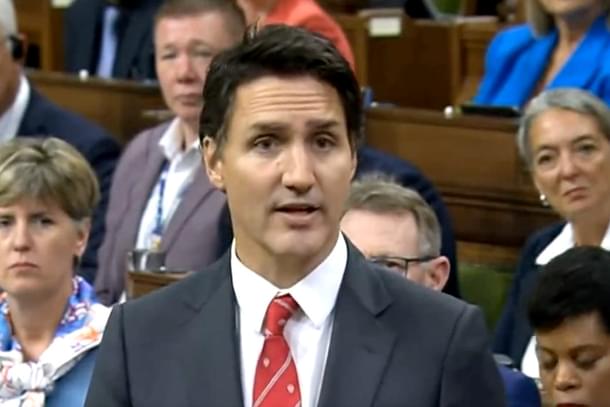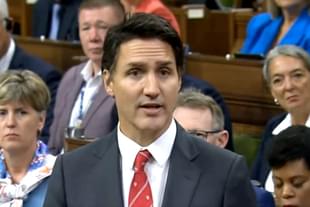News Brief
Trudeau's Final 'Regret'—What His Resignation Means For Canada’s Political Landscape
Vansh Gupta
Jan 07, 2025, 05:25 PM | Updated 05:25 PM IST
Save & read from anywhere!
Bookmark stories for easy access on any device or the Swarajya app.


Justin Trudeau, Canada’s 23rd Prime Minister, announced his resignation on Monday (6 January), ending nearly nine years in office and over a decade as Liberal Party leader.
In a packed press conference in Ottawa, Trudeau shared a reflective tone, highlighting one regret that continues to resonate as his leadership ends.
“If I have one regret, particularly as we approach this election… I do wish we’d been able to change the way we elect our governments in this country so that people could simply choose a second choice, or a third choice on the same ballot,” he said.
Trudeau’s resignation also comes amid mounting challenges for the Liberal Party. Plunging approval ratings, economic hardships, and a resurgent Conservative opposition led by Pierre Poilievre have left the party at a crossroads.
Poilievre, a vocal critic of Trudeau’s policies, has capitalised on public discontent, pledging to 'cap spending, axe taxes, reward work, build homes, stop crime, secure borders, and put Canada first.'
With Trudeau stepping down, the focus shifts to the future of the Liberal Party and the nation. A leadership race is set to begin, with potential contenders including Mark Carney, Foreign Minister Mélanie Joly, and former deputy Chrystia Freeland.
The party’s national executive will outline the process, while Trudeau’s request to suspend parliamentary proceedings until 24 March gives the Liberals time to regroup.
As Trudeau exits, Canada stands at a pivotal juncture. The nation faces pressing challenges, from economic instability to social divides.
Vansh Gupta is an Editorial Associate at Swarajya.





